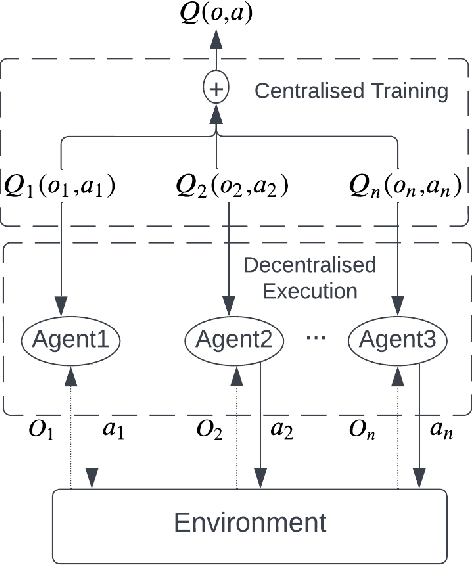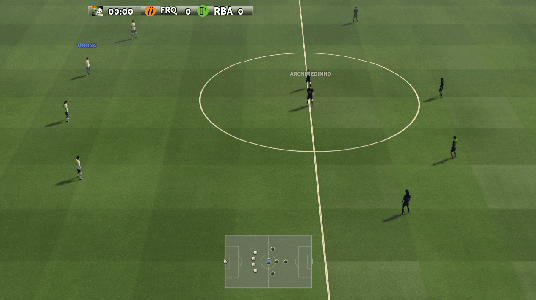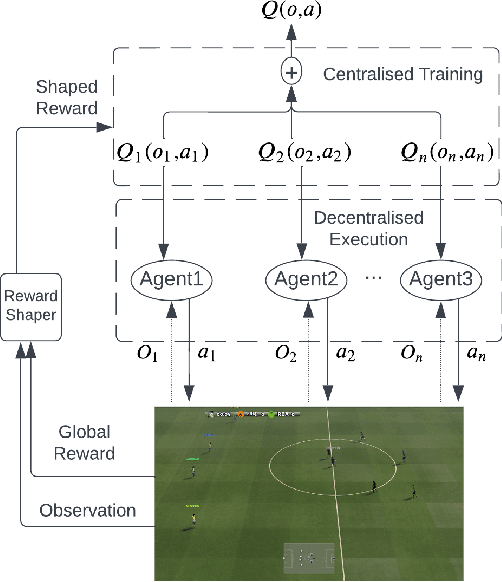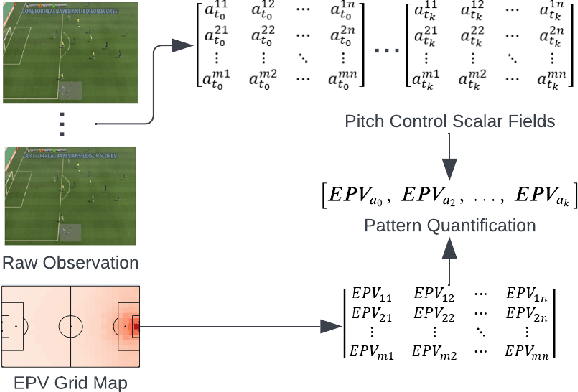Chaoyi Gu
Player Pressure Map -- A Novel Representation of Pressure in Soccer for Evaluating Player Performance in Different Game Contexts
Jan 29, 2024



Abstract:In soccer, contextual player performance metrics are invaluable to coaches. For example, the ability to perform under pressure during matches distinguishes the elite from the average. Appropriate pressure metric enables teams to assess players' performance accurately under pressure and design targeted training scenarios to address their weaknesses. The primary objective of this paper is to leverage both tracking and event data and game footage to capture the pressure experienced by the possession team in a soccer game scene. We propose a player pressure map to represent a given game scene, which lowers the dimension of raw data and still contains rich contextual information. Not only does it serve as an effective tool for visualizing and evaluating the pressure on the team and each individual, but it can also be utilized as a backbone for accessing players' performance. Overall, our model provides coaches and analysts with a deeper understanding of players' performance under pressure so that they make data-oriented tactical decisions.
Embedding Contextual Information through Reward Shaping in Multi-Agent Learning: A Case Study from Google Football
Mar 25, 2023



Abstract:Artificial Intelligence has been used to help human complete difficult tasks in complicated environments by providing optimized strategies for decision-making or replacing the manual labour. In environments including multiple agents, such as football, the most common methods to train agents are Imitation Learning and Multi-Agent Reinforcement Learning (MARL). However, the agents trained by Imitation Learning cannot outperform the expert demonstrator, which makes humans hardly get new insights from the learnt policy. Besides, MARL is prone to the credit assignment problem. In environments with sparse reward signal, this method can be inefficient. The objective of our research is to create a novel reward shaping method by embedding contextual information in reward function to solve the aforementioned challenges. We demonstrate this in the Google Research Football (GRF) environment. We quantify the contextual information extracted from game state observation and use this quantification together with original sparse reward to create the shaped reward. The experiment results in the GRF environment prove that our reward shaping method is a useful addition to state-of-the-art MARL algorithms for training agents in environments with sparse reward signal.
Deep Generative Multi-Agent Imitation Model as a Computational Benchmark for Evaluating Human Performance in Complex Interactive Tasks: A Case Study in Football
Mar 23, 2023



Abstract:Evaluating the performance of human is a common need across many applications, such as in engineering and sports. When evaluating human performance in completing complex and interactive tasks, the most common way is to use a metric having been proved efficient for that context, or to use subjective measurement techniques. However, this can be an error prone and unreliable process since static metrics cannot capture all the complex contexts associated with such tasks and biases exist in subjective measurement. The objective of our research is to create data-driven AI agents as computational benchmarks to evaluate human performance in solving difficult tasks involving multiple humans and contextual factors. We demonstrate this within the context of football performance analysis. We train a generative model based on Conditional Variational Recurrent Neural Network (VRNN) Model on a large player and ball tracking dataset. The trained model is used to imitate the interactions between two teams and predict the performance from each team. Then the trained Conditional VRNN Model is used as a benchmark to evaluate team performance. The experimental results on Premier League football dataset demonstrates the usefulness of our method to existing state-of-the-art static metric used in football analytics.
 Add to Chrome
Add to Chrome Add to Firefox
Add to Firefox Add to Edge
Add to Edge